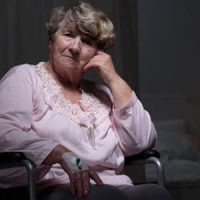Top Signs that of Elder Self-Neglect

Elder self-neglect is a serious issue and a form of elder abuse. According to a published study in the New England Journal of Medicine, as many as one in 10 elderly individuals self-neglect. African Americans and the poor have the highest rates of self-neglect. Serious consequences exist when an elderly person is self-neglecting, including increasing the chances that they will be hospitalized or they will die.
According to the Public Policy Institute of the AARP, when cases of elderly harm are reported to Adult Protective Services, as many as half are self-neglect related.
If you are concerned about an elderly loved one in your life engaging in self-neglect, or if you know of an elderly individual living in unsafe conditions, you may decide to report this. To do so, you can connect with any of the following:
- New Jersey Adult Protective Services: 609-588-6501
- The State of New Jersey Department of Human Services Division of Aging Services: 1-877-222-3737
- New Jersey Department of Health and Senior Services: (800) 367-6543
- National Center on Elder Abuse: 1-855-500-3537
Identifying Elder Self-Neglect
When a senior is unable to take care of themselves and is living in a situation that is unhealthy and dangerous, self-neglect is likely a real concern. As we age, our mental capacity becomes diminished, or our physical capabilities are limited. In some situations, both the physical and mental health of an elderly individual are compromised. As a result, it can be much harder to account for daily basic needs such as eating, drinking, hygiene, dressing, obtaining medical care, managing personal finances, or generally staying safe.
The most common signs that an elderly person is self-neglecting include:
- Signs of poor hygiene.
- Appearance of malnourishment and dehydration.
- Unsanitary living conditions.
- Indications that medical conditions are not managed and medication is not being taken or obtained.
- Physical signs of rashes, bedsores, bruises, confusion.
- Lack of medical aids that are necessary, like glasses or hearing aids.
- Financial problems.
- Not dressing appropriately for the weather or wearing dirty and unkempt clothing.
To help a senior who is self-neglecting or to prevent self-neglect in a senior’s life, there are proactive measures you can take, such as:
- Always follow up with an elderly person, calling them, driving by their home, visiting with them, etc.
- Contact a local or state agency or a charitable organization, or connect with neighbors for assistance.
- Help an elderly person travel to their medical appointments, help them make appointments, manage their appointment schedule, and keep an eye on their medicine intake to ensure it is done regularly and as prescribed.
- Assist an elderly person with daily cleaning or hire a professional cleaning service.
- Connect an elderly person with a senior center or other location where they can socialize with their peers.
Speak to a New Jersey and Pennsylvania Nursing Home Abuse Attorney Today
Self-neglect is incredibly dangerous for an older individual and can adversely affect their quality of life and their health and well-being. As a form of elder abuse, the best way to minimize the chances that your loved one is in a precarious situation is to be an active part of their life.
If you suspect elder abuse is happening in a nursing home or long-term care facility you can call our South Jersey nursing home abuse lawyer at Monaco Law PC to schedule a free consultation at (609) 277-3166 for our New Jersey office and (215) 546-3166 for our office in Pennsylvania.
We are a New Jersey and Pennsylvania nursing home abuse law firm serving Atlantic County, Bucks County, Burlington County, Cape May County, Camden County, Chester County, Cumberland County, Delaware County, Gloucester County, Mercer County, Middlesex County, Montgomery County, Philadelphia, Ocean County, Salem County, and all of South Jersey.
Source:
ncbi.nlm.nih.gov/pmc/articles/PMC4035097/
